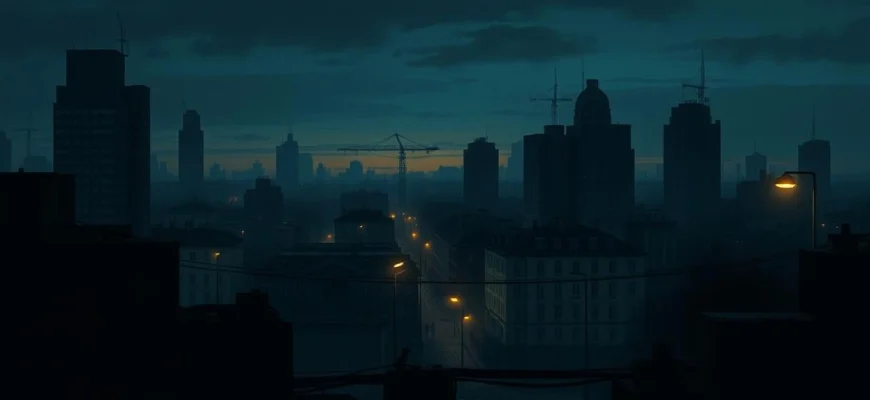If you're a fan of 'The Conversation' (1974), Francis Ford Coppola's gripping thriller about surveillance and paranoia, you're likely craving more films that delve into similar themes of psychological tension, moral ambiguity, and intricate storytelling. This article curates 10 movies and shows that echo the suspenseful atmosphere and thought-provoking narratives of 'The Conversation,' ensuring you'll find your next cinematic obsession. Whether you're drawn to the meticulous sound design, the haunting performances, or the exploration of privacy and ethics, these picks will keep you on the edge of your seat.
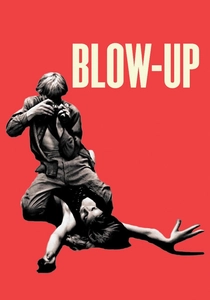
Blow-Up (1966)
Description: Like 'The Conversation', 'Blow-Up' explores themes of perception, reality, and the unreliability of human senses. Both films feature protagonists who become obsessed with uncovering hidden truths, leading to paranoia and existential crises. The visual aesthetics of both films emphasize surveillance and voyeurism, with a focus on the protagonist's isolation in an urban environment.
Fact: 'Blow-Up' was directed by Michelangelo Antonioni, marking his first English-language film. The film won the Palme d'Or at the 1967 Cannes Film Festival. The ambiguous ending has been the subject of much debate and analysis among film scholars.
 Watch Now
Watch Now 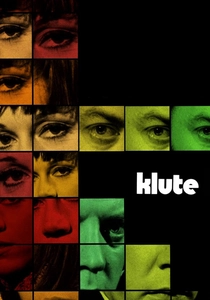
Klute (1971)
Description: Like 'The Conversation', 'Klute' deals with surveillance and the invasion of privacy, though from a more personal, psychological perspective. Both films feature protagonists who become obsessed with audio recordings that reveal disturbing truths. The films share a similar slow-burn tension and exploration of urban alienation.
Fact: Jane Fonda won her first Oscar for her performance. Director Alan J. Pakula used innovative sound design to create tension. The film is considered an early example of the neo-noir genre.
 Watch Now
Watch Now 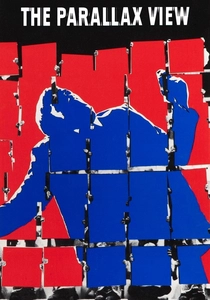
The Parallax View (1974)
Description: This film shares with 'The Conversation' a deep sense of paranoia about unseen forces controlling events. Both films deal with the theme of surveillance and the individual's powerlessness against larger, shadowy organizations. The political conspiracy angle and the protagonist's gradual realization of a terrifying truth mirror the narrative structure of 'The Conversation'.
Fact: Directed by Alan J. Pakula, it's part of his 'paranoia trilogy'. Features one of cinema's most famous assassination sequences. The film's bleak ending was controversial at the time of release.
 Watch Now
Watch Now 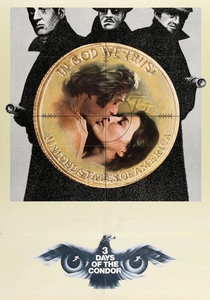
Three Days of the Condor (1975)
Description: Similar to 'The Conversation', this film explores themes of surveillance, government conspiracy, and the individual's struggle against powerful systems. Both protagonists find themselves in dangerous situations after uncovering information they weren't meant to see. The films share a 1970s aesthetic of political thrillers with morally ambiguous characters.
Fact: Based on James Grady's novel 'Six Days of the Condor'. Robert Redford's character was one of the first 'computer geeks' in cinema. The film's depiction of CIA operations caused controversy within the intelligence community.
 Watch Now
Watch Now 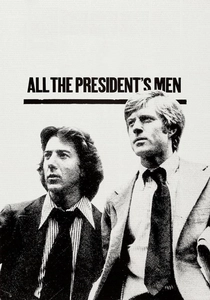
All the President's Men (1976)
Description: Like 'The Conversation', this film deals with uncovering hidden truths and the power of recorded evidence. Both films explore themes of paranoia and institutional corruption, with protagonists who risk everything to expose the truth. The films share a similar 1970s aesthetic of political thrillers based on real events.
Fact: Won 4 Academy Awards including Best Adapted Screenplay. The real Deep Throat's identity wasn't revealed until
 Watch Now
Watch Now 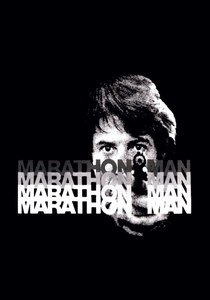
Marathon Man (1976)
Description: This thriller shares with 'The Conversation' themes of paranoia and the protagonist being drawn into a dangerous world he doesn't understand. Both films feature ordinary men caught in extraordinary circumstances, with a strong emphasis on psychological tension. The famous dental torture scene parallels the psychological torture Harry Caul endures in 'The Conversation'.
Fact: The infamous dental torture scene was so realistic it caused walkouts. Dustin Hoffman stayed awake for days to appear genuinely exhausted. Laurence Olivier based his villainous character on Nazi doctor Josef Mengele.
 Watch Now
Watch Now 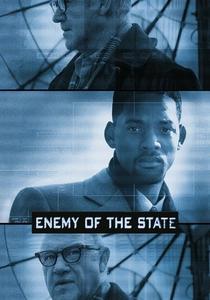
Enemy of the State (1998)
Description: This modern thriller updates 'The Conversation's' themes of surveillance for the digital age. Both films feature protagonists who become targets after accidentally acquiring incriminating evidence. The films share concerns about privacy, government overreach, and technology's role in surveillance.
Fact: Gene Hackman's character is essentially Harry Caul from 'The Conversation' years later. The NSA initially refused to cooperate with the production. Many surveillance techniques shown were based on real technology.
 Watch Now
Watch Now 
The Lives of Others (2006)
Description: This German film shares 'The Conversation's' central theme of surveillance and its moral implications. Both explore how surveillance affects both the watcher and the watched, with protagonists who experience moral crises about their work. The films share a similar slow-building tension and focus on the psychological impact of constant observation.
Fact: Won the Academy Award for Best Foreign Language Film. The Stasi archives consultant on set was a former Stasi officer. Director Florian Henckel von Donnersmarck researched for years to ensure historical accuracy.
 Watch Now
Watch Now 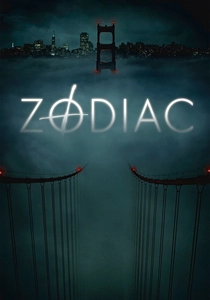
Zodiac (2007)
Description: This film shares with 'The Conversation' an obsession with uncovering truth through technology and evidence. Both protagonists become consumed by their investigations, to the detriment of their personal lives. The films share a meticulous attention to detail and a similar visual style that emphasizes procedure and obsession.
Fact: David Fincher used the actual Zodiac crime scenes as shooting locations. The film's production was delayed by Fincher's perfectionism. Robert Downey Jr. ad-libbed many of his lines.
 Watch Now
Watch Now 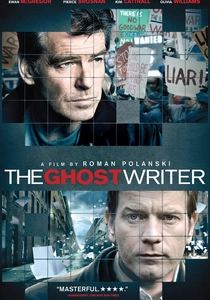
The Ghost Writer (2010)
Description: Like 'The Conversation', this political thriller deals with uncovering dangerous truths and the paranoia that follows. Both films feature protagonists who become increasingly isolated as they piece together a conspiracy. The films share a similar atmosphere of dread and focus on the protagonist's psychological unraveling.
Fact: Roman Polanski directed the film while under house arrest. Ewan McGregor learned to type with two fingers for his role. The film's ending was changed from the original novel.
 Watch Now
Watch Now 
